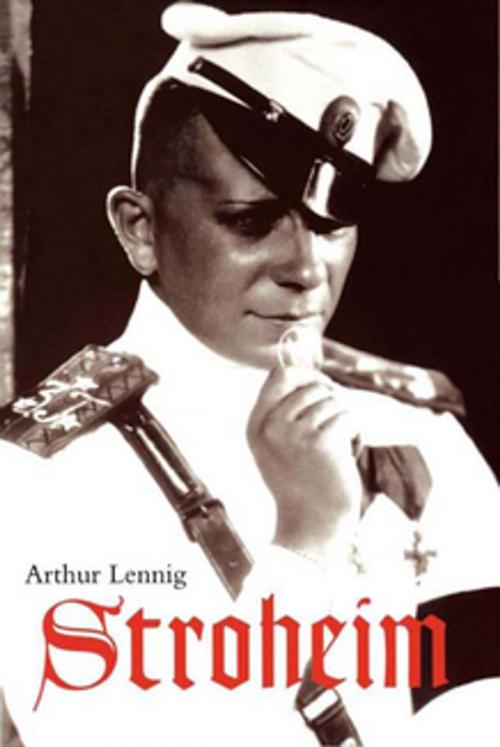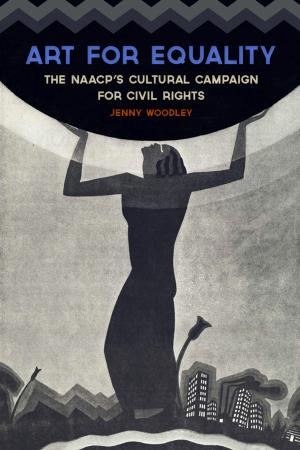Stroheim
Nonfiction, Entertainment, Film, History & Criticism, Biography & Memoir, Entertainment & Performing Arts, Historical| Author: | Arthur Lennig | ISBN: | 9780813137506 |
| Publisher: | The University Press of Kentucky | Publication: | September 29, 2004 |
| Imprint: | The University Press of Kentucky | Language: | English |
| Author: | Arthur Lennig |
| ISBN: | 9780813137506 |
| Publisher: | The University Press of Kentucky |
| Publication: | September 29, 2004 |
| Imprint: | The University Press of Kentucky |
| Language: | English |
Erich von Stroheim (1885-1957) was one of the giants in American film history. Stubborn, arrogant, and colorful, he saw himself as a cinema artist, which led to conflicts with producers and studio executives who complained about the inflated budgets and extraordinary length of his films. Stroheim achieved great notoriety and success, but he was so uncompromising that he turned his triumph into failure. He was banned from ever directing again and spent his remaining years as an actor.
Stroheim's life has been wreathed in myths, many of his own devising. Arthur Lennig scoured European and American archives for details concerning the life of the actor and director, and he counters several long-accepted claims. Stroheim's tales of military experience are almost completely fictitious; the "von" in his name was an affectation adopted at Ellis Island in 1909; and, counter to his own claim, he did not participate in the production of The Birth of a Nation in 1914. Wherever Stroheim lived, he was an outsider: a Jew in Vienna, an Austrian in southern California, an American in France. This contributed to an almost pathological need to embellish and obscure his past; yet, it also may have been the key to his genius both behind and in front of the camera. As an actor,
Stroheim threw himself into his portrayals of evil men, relishing his epithet, ""The Man You Love to Hate."" As a director, he immersed himself in every facet of production, including script writing and costume design. In 1923 he created his masterpiece Greed, infamous for its eight-hour running time. Stroheim returned to acting, saving some of his finest performances for La Grande Illusion (1937) and Billy Wilder's Sunset Boulevard (1950), a role he hated, probably because it was too similar to the story of his own life.
Erich von Stroheim (1885-1957) was one of the giants in American film history. Stubborn, arrogant, and colorful, he saw himself as a cinema artist, which led to conflicts with producers and studio executives who complained about the inflated budgets and extraordinary length of his films. Stroheim achieved great notoriety and success, but he was so uncompromising that he turned his triumph into failure. He was banned from ever directing again and spent his remaining years as an actor.
Stroheim's life has been wreathed in myths, many of his own devising. Arthur Lennig scoured European and American archives for details concerning the life of the actor and director, and he counters several long-accepted claims. Stroheim's tales of military experience are almost completely fictitious; the "von" in his name was an affectation adopted at Ellis Island in 1909; and, counter to his own claim, he did not participate in the production of The Birth of a Nation in 1914. Wherever Stroheim lived, he was an outsider: a Jew in Vienna, an Austrian in southern California, an American in France. This contributed to an almost pathological need to embellish and obscure his past; yet, it also may have been the key to his genius both behind and in front of the camera. As an actor,
Stroheim threw himself into his portrayals of evil men, relishing his epithet, ""The Man You Love to Hate."" As a director, he immersed himself in every facet of production, including script writing and costume design. In 1923 he created his masterpiece Greed, infamous for its eight-hour running time. Stroheim returned to acting, saving some of his finest performances for La Grande Illusion (1937) and Billy Wilder's Sunset Boulevard (1950), a role he hated, probably because it was too similar to the story of his own life.















